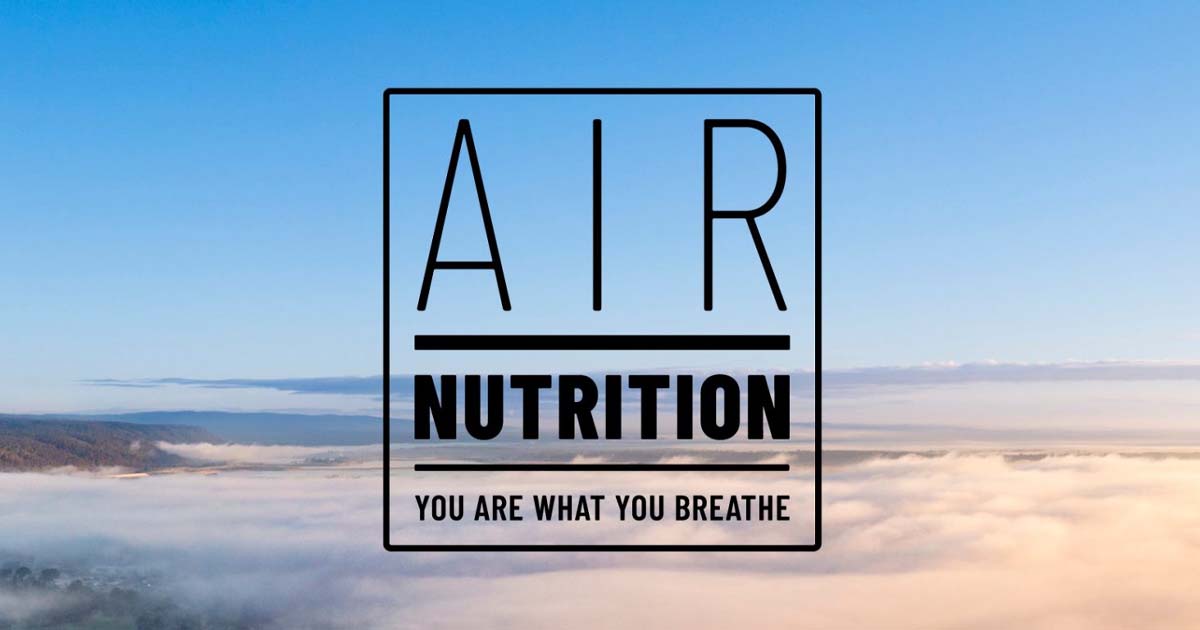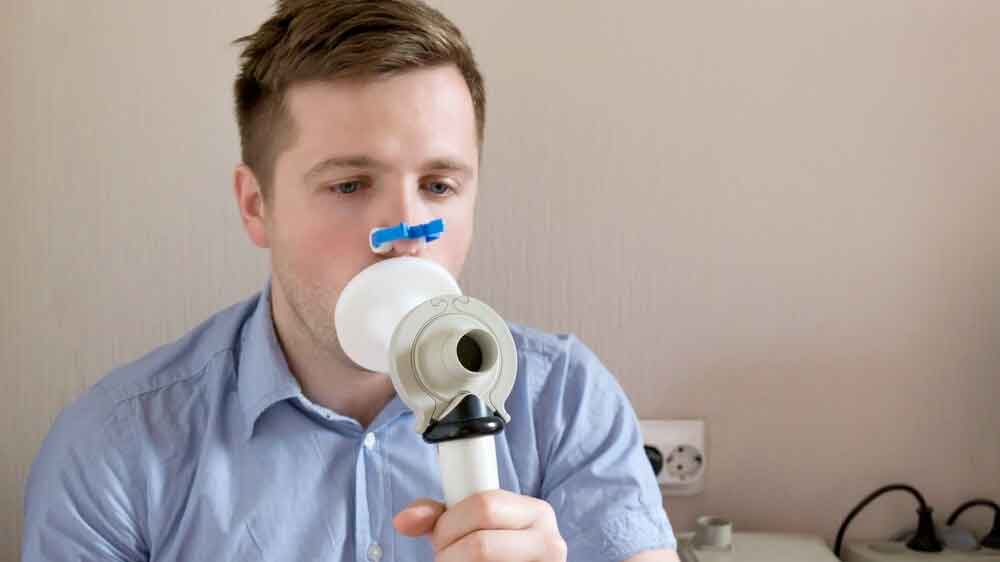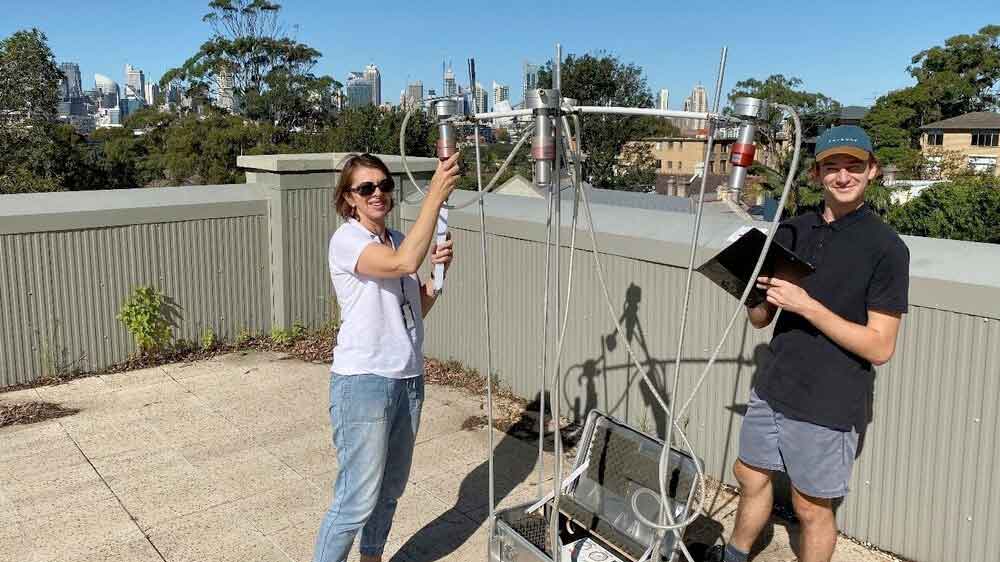The Woolcock Institute of Medical Research

Air nutrition on the table this Asthma Week
People are being encouraged to learn about Air Nutrition this Asthma Week (1-7 September) under a new campaign launched by Asthma Australia and peak health and climate bodies.
“Air Nutrition – you are what you breathe” encourages us all to think differently about what we are breathing in, and the simple steps we can take to reduce our intake of air pollution for better health.
Recent studies investigating the impact of air pollution on health indicate there is no “safe” level of long-term exposure to particulate matter (PM2.5) or nitrogen dioxide (NO2), pollutants commonly found in sources like woodfire smoke and vehicle emissions.
Asthma Australia Medical Advisor and Respiratory Physician Dr John Blakey said if you care about what you drink, you should care about what you breathe.
"Australians know where to get decent coffee, or a good wine. They spend almost a billion dollars a year on bottled water,” Dr Blakey said.
“Many people are choosy about the thousand litres they’ll drink each year, but probably don’t pay much attention to the millions of litres of air they’ll breathe. If there were chemicals in tap water that caused disease, they would want to know about it.
“In contrast, we know that the chemicals and particulates in the air can cause asthma, infections, and cancer. We need to do more about that.”
This year alone, some communities across Australia have experienced high levels of air pollution (PM2.5) and may be unaware of the health risk.
The worst peak hourly averages for pollution in the country were Oakdale in South West of Sydney on May 3 (PM2.5 at 661 ug/m3 – ‘EXTREMELY POOR’), and Winnellie in Darwin on July 6 (PM2.5 at 660.9ug/m3 – ‘EXTREMELY POOR’). The Gladstone Region experienced the three highest pollution events for Queensland this year.
While COVID-19 restrictions have seen reports of reductions in some sources of air pollution, levels of woodfire heater smoke, hazard reduction smoke, dust and industry emissions have continued to tip the scale in normally ‘clean’ areas.
For many of the 2.7 million Australians living with asthma, peaks in air pollution like this can lead to an increase in asthma symptoms – like cough and wheeze – and an increase in hospitalisations.
For the general population, exposure to air pollution has been linked to lower life expectancy, risk of premature death, and increased burden of disease. Poor air quality now causes more premature deaths than obesity on a global scale.
Asthma Australia CEO Michele Goldman encouraged people to start thinking about their Air Nutrition as a key part of a healthy life, especially for those with health conditions like asthma.
“This Asthma Week, we hope for everyone to start caring as much about the air they breathe as the food they eat, for their short and long-term health,” she said.
“You can start small, like avoid busy roads when exercising or use an extractor fan when cooking with gas to learning how to stay safe when air quality is poor. These measures can go a long way in improving your Air Nutrition.
“When you consistently breathe in pollutants it causes irritation and tissue damage in your lungs and even other parts of our body. Many people with asthma are sensitive to this and know when pollution is in the air, whereas people who don’t get symptoms may have no idea of the potential of its long-term impacts.”
Those most at risk from air pollution include people with asthma, respiratory and heart conditions, pregnant women, the elderly and young children.
Asthma Week is being proudly supported by parliamentarian and paediatrician Dr Mike Freelander MP, Co-Chair of the Federal Parliament's Parliamentary Friends of Asthma.
“With one in nine Australians affected by asthma, it is critical to raise awareness of the symptoms and implications for this condition,” Dr Freelander said.
“Air pollution is a growing concern among the health community. As a paediatrician, over the years I have seen countless patients who suffer with asthma – and I have also seen the benefits of an appropriately managed Asthma Action Plan.”
Fellow parliamentarian and Federal Parliament's Parliamentary Friends of Asthma Co-Chair Mr Tony Pasin MP is also backing the campaign.
“Around 2.7 million Australians live with asthma with many of them suffering from severe symptoms, and as someone who has suffered with severe asthma most of my adult life, I understand how debilitating the condition can be,” Mr Pasin said.
“We may consider ourselves to have clean and healthy air, but this is not always the case. Consistent exposure can lead to the development of serious long term health conditions like asthma, heart and lung disease, stroke, and cancer. That’s why reducing daily exposure can have immediate and lifelong benefits for all of us. Raising awareness of respiratory diseases like asthma and the need for cautious practices and prevention measures is vital, especially at this challenging time."
For more information on Asthma Week and Air Nutrition, please visit www.asthmaweek.org.au.
Reflections from the asthma front line – stay tuned
Throughout Asthma Week 2021, we'll be bringing you stories from people at the front line of the fight against asthma: a patient, a GP, a pharmacist, a respiratory physician, a rural pharmacist and a researcher. Stay tuned to hear about their journey, their challenges and their tips for people affected by asthma.
Support our work
The Woolcock Institute of Medical research is a not-for-profit research institute. Your tax-deductible donation to the Woolcock will help us improve the quality of life for people affected by breathing disorders like asthma.
Here are some examples of what your donation can do.












